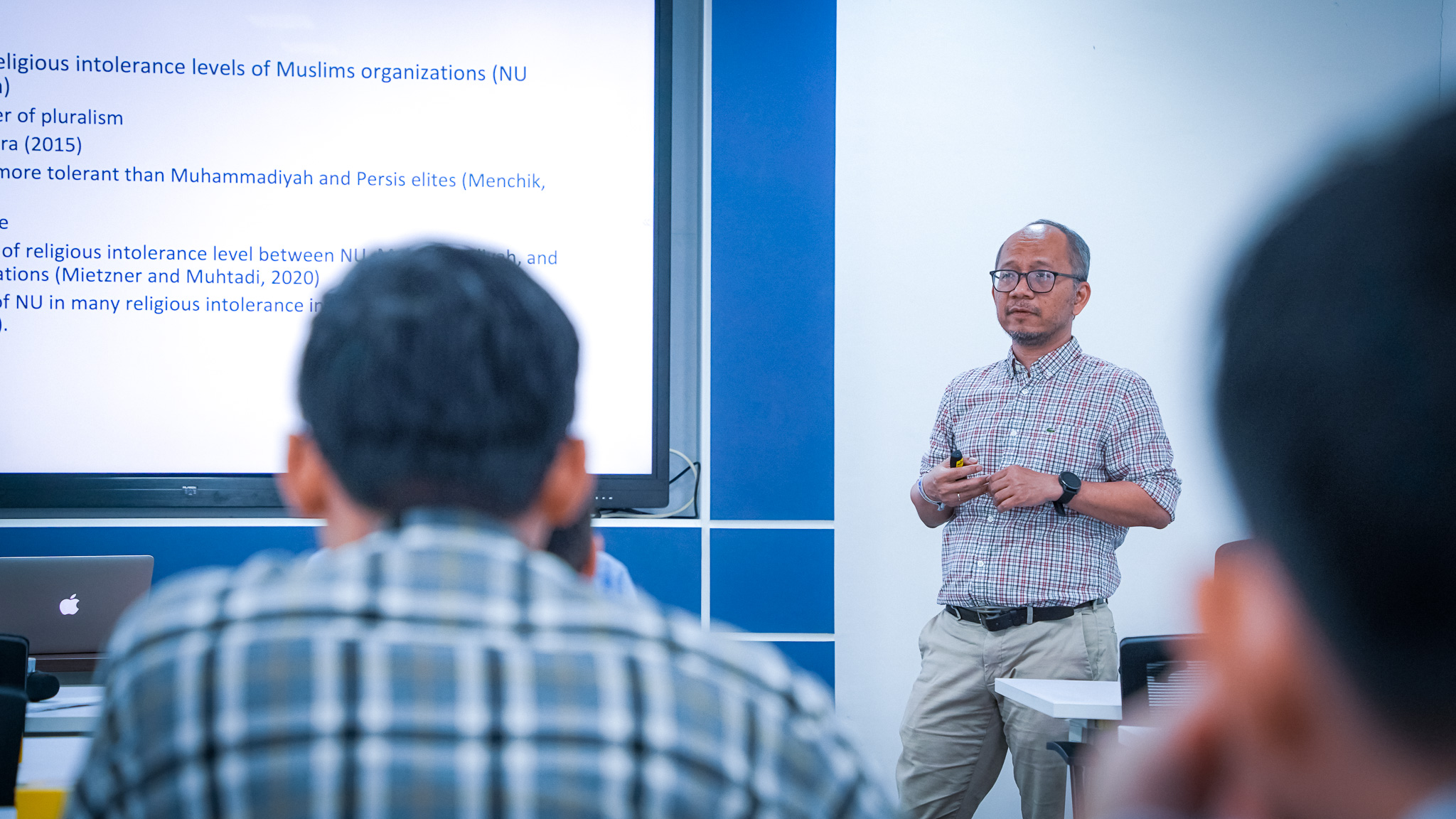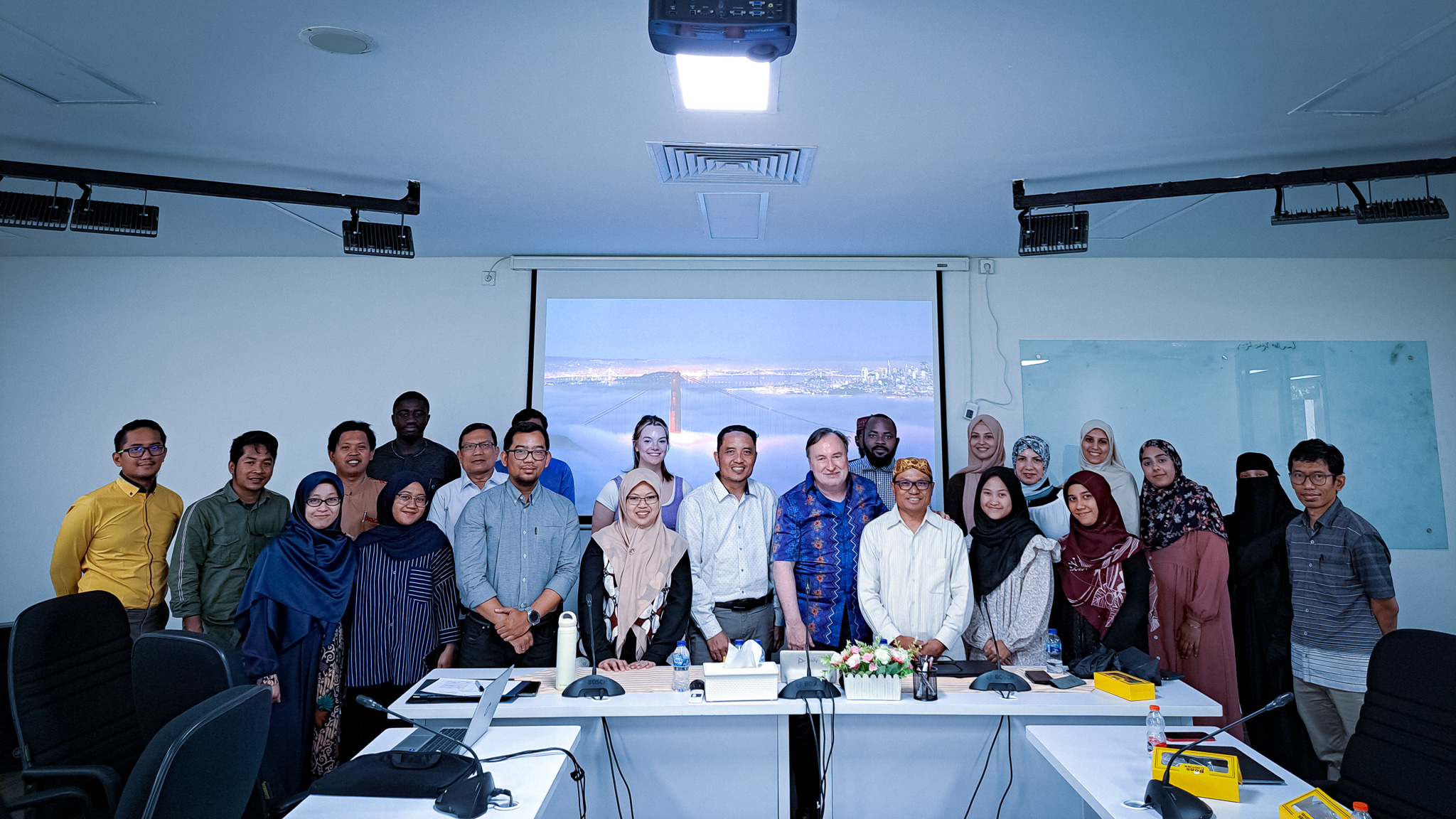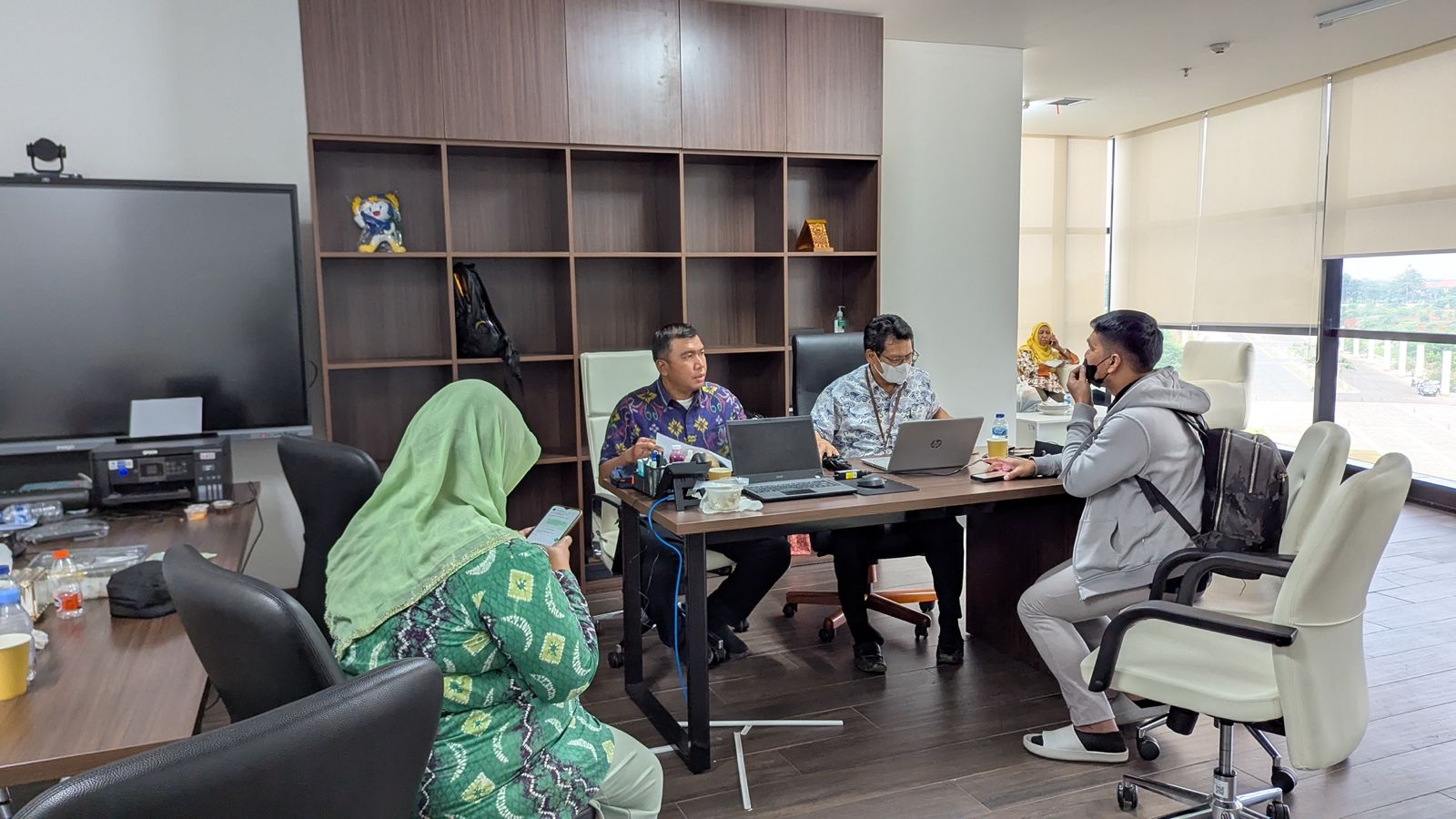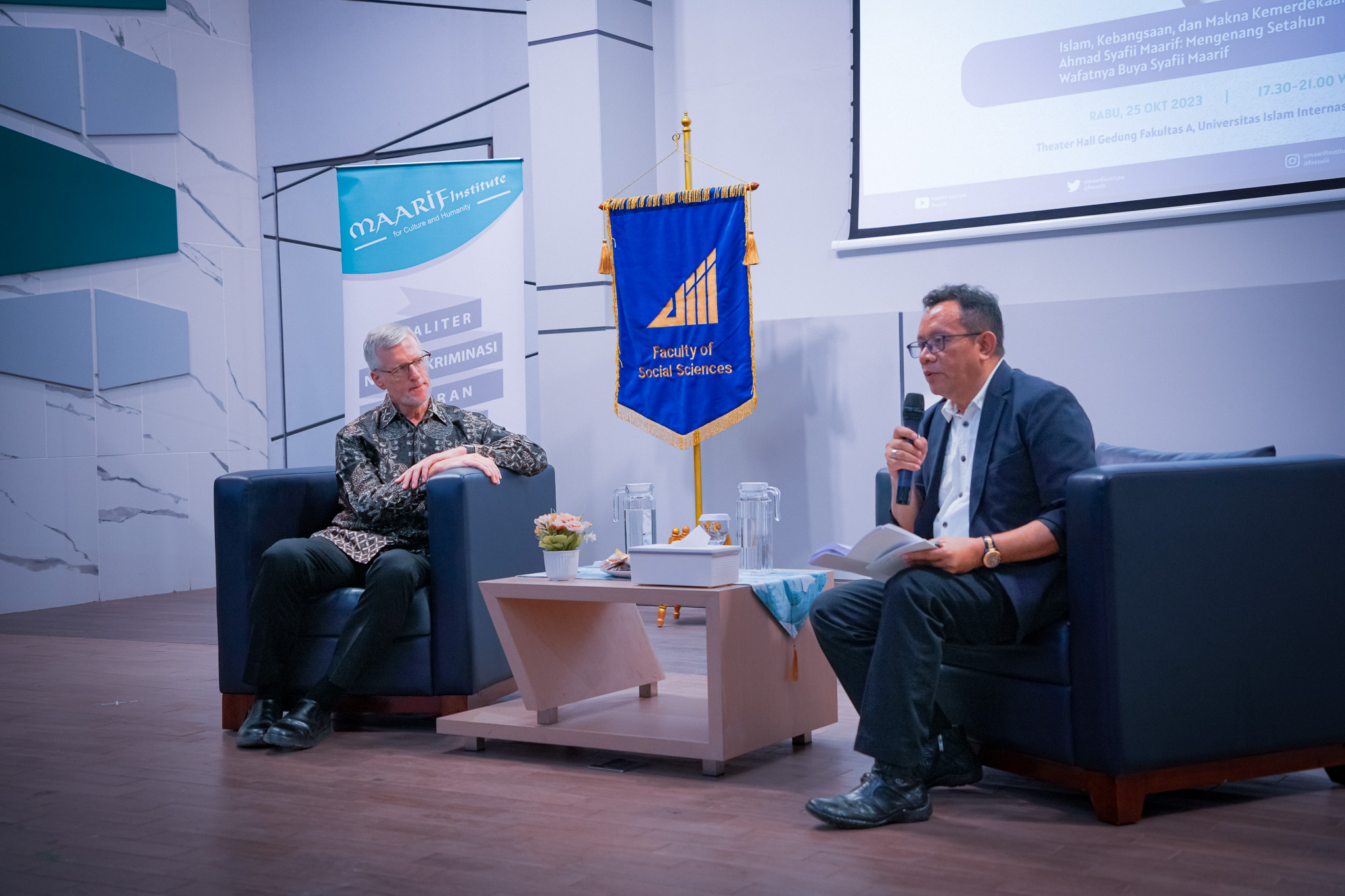Exploring Religious Intolerance in Indonesia: Dr. Akhmad Rizal Shidiq's Lecture Provides In-Depth Understanding
May 15, 2023Contributor: Magello R. Fenis | Editor: Dadi Darmadi

On May 11, 2023, the Faculty of Social Sciences at Universitas Islam Internasional Indonesia (UIII) organized a session of the Brownbag Series with the topic "Comparing Religious Intolerance in Indonesia by Affiliation to Muslim Organizations." The event featured Dr. Akhmad Rizal Shidiq, a University Lecturer at the Leiden University Institute for Area Studies, as the guest speaker.
Dr. Shidiq, a highly experienced researcher, has conducted numerous studies and large-scale survey analyses across various countries, including Indonesia, Malaysia, Thailand, Nepal, Europe, and Central Asia. He also possesses extensive experience working with government and international agencies.
During his lecture, Dr. Shidiq highlighted the ongoing debate regarding religious intolerance levels among Muslim organizations in Indonesia, specifically focusing on Nahdlatul Ulama (NU) and Muhammadiyah. While it is commonly assumed that NU is known for defending pluralism and that its elites are more tolerant compared to Muhammadiyah and Persis, Dr. Shidiq aimed to provide a more nuanced perspective on the matter.
However, Dr. Shidiq acknowledged that differing opinions exist, with some individuals disagreeing and asserting that there is no significant difference in the level of religious intolerance between NU, Muhammadiyah, and other organizations. He pointed out several instances of religious intolerance committed by NU members, challenging the assumption that NU is inherently more tolerant than other Muslim organizations in Indonesia.
The lecture sparked significant interest among the participants, leading to an engaging Q&A session. Faculty members and students from the Faculty of Social Sciences (FOSS) posed insightful inquiries about Dr. Shidiq's research findings. Based on his research, which included a reference group of Indonesian Muslims who declared themselves unaffiliated with any Muslim organization, NU followers were generally found to be the most tolerant.
For a comprehensive understanding, it is essential to note that NU followers, constituting 66% of Indonesian Muslims, exhibited greater levels of tolerance compared to both Muhammadiyah followers and those affiliated with other organizations, accounting for 16%. Furthermore, the research indicated that NU followers were nearly as tolerant as the members of the reference group, who represented the most secular segment, in two out of five religious tolerance indicators.
Dr. Shidiq also emphasized the existence of other phenomena related to religious intolerance in Indonesia that require further in-depth study, indicating a significant research gap. He encouraged students to concentrate more on this topic and conduct additional research to shed light on these unexplored areas. Additionally, he cautioned against generalizing the research conclusion and assuming inherent intolerance among individuals outside of NU, as various factors can influence attitudes towards religious tolerance. []
- Distinguished Moroccan Delegation Visits UIII to Discuss Academic Collaboration
- Football Fever at UIII, A Global Community Celebrates Indonesia’s Victory
- The Garuda Soars, Indonesia’s Historic Football Victory Inspires a Nation
- From Belgrade to Jakarta: Advancing Religious Moderation Through Global Cooperation
- UIII Strengthens Academic and Interfaith Cooperation at the Fifth Indonesia-Serbia Dialogue
- Dr. Philips J. Vermonte Appointed as Spokesperson for Foreign Affairs at Presidential Communication Office
- UIII Rector Highlights Education’s Role in Interfaith Dialogue at Serbia-Indonesia Forum
- UIII Partners with Sentra Medika Hospital for Health Facility Expansion
- UIII Joins National Quality Assurance Network to Enhance Accreditation
- How to Get Started with UIII’s New ‘TripleAiYou’ Mobile App


